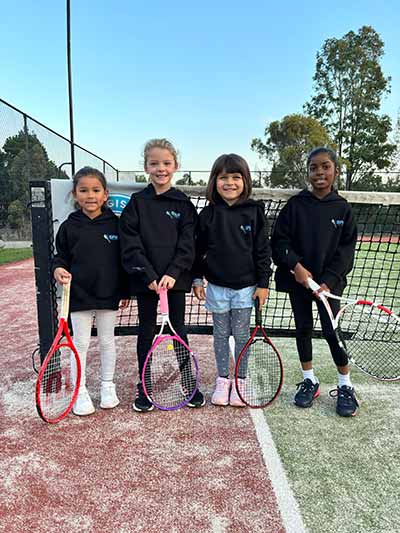The role of the Tennis parent in developing tennis players will always draw debate. One of the most experienced coaches (and successful – coached 10 + world number 1 players) in the game’s history, Nick Bollettieri, wrote an article on the topic:
What did tennis legend Nick Bollettieri say?
“The greatest error parents can make is to voice expectations for their children beyond that of having a good time. As soon as a child begins to play for a parent’s approval or to maintain harmony in the family, his motivation and fun will diminish instantly, no matter how talented he is. Many young players with potential have been turned off tennis by their parents, and some great talents have been destroyed in this fashion. Unfortunately, among tournament circles, one often hears that “Susie has super talent, but her parents put too much pressure on her, and she just gets too uptight and nervous to win.
Below are notes by Mario Matejcek, Spark Tennis.
What is parental pressure?
Parental pressure can take many forms. It can be a question of forcing a child to practice, take lessons, or compete in matches against his/her will.
A subtle byproduct of parental expectations can also be over criticism of a child’s efforts. A child shouldn’t be made to feel that every mistake will be thrown back at them. It’s hard enough to go through the agony of playing below your own expectations let alone knowing that your parents will try to critique you after your match.
From my own experience, parents play one of the most critical roles in a child’s development. A parent needs to help their child define what success means and what it looks like. If it’s purely based on external achievement like winning tennis matches, I think you should step back and ask what the consequences could be in 10 years. I don’t believe we ask ourselves questions like that before we react to our child’s performance on a tennis court.
I was fortunate to have parents and a coach who instilled great values in me on a consistent basis, which has positively influenced me throughout my journey so far. In saying that, my parents and coaches could also own up to their mistakes, which taught me many life lessons.
As parents, what can you do about it?
Change the language you use and use a different approach. As an example and one example that we implement into our coaching method with positive language is: ” Great effort! What do you think you did well, and what could do differently next time?
These small changes in language will make a world of difference.
Psychologically, human beings learn more effectively from positive rather than negative reinforcement. It is more helpful to tell a child what he did well and suggest what to try in the future than to rant about what went wrong and what not to do. Whilst there is a time and place to discuss areas for growth/improvement, I believe it’s important to do it in a way that will encourage open communication and an environment where the information is retained. It’s difficult to retain information if your child only hears how he/she is not doing things well.
Even on the days that you know aren’t your child’s best, something positive can be said, such as, “I know you didn’t play your best today, but I liked the way you kept trying and didn’t give up,” rather than “you played badly today”. A child’s coach is responsible for tennis technique, but parents can help his mental well-being.
I know as parent’s it can be challenging to watch your child not perform well, but what’s more important is using the “bad” days as a valuable teaching moment and building trust with your child through compassionate nurturing. You won’t see the results immediately, but you will see that this will compound into a beautiful relationship 15-20 years down the track.
With everything that has been said, this is from my own personal experience travelling the world for 10-15 years and seeing a lot of different and interesting things.
With everything that’s been said, I am under the assumption that your child is always giving 110% effort with whatever they are doing and is focusing on controlling the controllable.
If you have any further questions, please don’t hesitate to reach out. My email is info@sparktennis.com.au
Claim Your FREE Tennis Class at Spark Tennis in Melbourne!
Starting a new sport or playing at a new club can be a little daunting, we get it. That’s why we offer a free trial for new students, so you can see if Spark Tennis is right for you. Click here to claim your free trial today!



